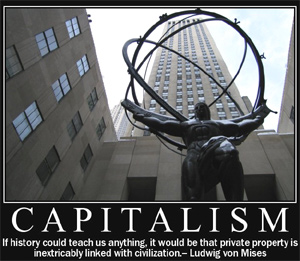Acton Institute | by Stephen Grabill | Nov. 4, 2009
Does the market inspire people to greater practical virtue, or does it eviscerate what little virtue any of us have?
Far from draining moral goodness out of us—as many think—the free market serves as a “school of the practical virtues.” Rather than elevating greed and self-sufficiency, the market fosters interdependence and cooperation. Its rewards do not go to those who are the most isolated, self-absorbed, or cut off from society, but to those who sustain mutually prosperous relationships with others. [Read more…]



 Orthodox Christianity And Capitalism: Are They Compatible? – 4/17/09 [audio:http://audio.ancientfaith.com/illuminedheart/ih_2009-04-17_pc.mp3|titles=Orthodox Christianity And Capitalism Are They Compatible?|artists=Chris Banescu]
Orthodox Christianity And Capitalism: Are They Compatible? – 4/17/09 [audio:http://audio.ancientfaith.com/illuminedheart/ih_2009-04-17_pc.mp3|titles=Orthodox Christianity And Capitalism Are They Compatible?|artists=Chris Banescu]